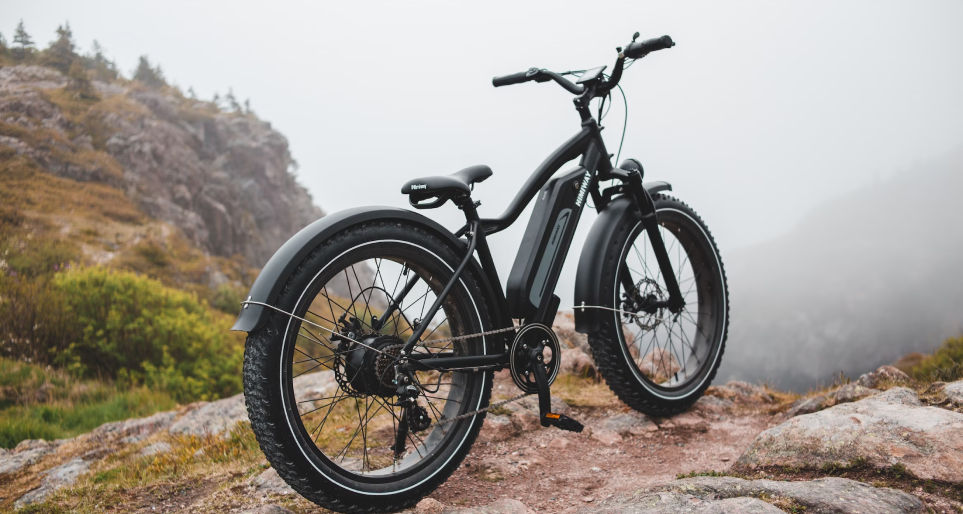The growing popularity of electric bicycles has sparked a huge interest in the world of cycling. People have grown tired of their once-favorite hobby, getting sweaty and straining their lower backs on the road as they pedal with all their might. There is a new generation that is eager to explore cycling for different reasons and this includes going electric. The benefits of being an electric bicyclist are many, from saving money on car expenses, reducing emissions by not needing to use your car for everyday errands, and having more time for hobbies and other activities you enjoy outside. With all these benefits, it’s no wonder why more people are turning to e-bikes than ever before. This guide will help you differentiate between an e-bike and a normal bike so you can make the right decision for your needs. Read on to learn more.
What is an E-Bike?
An e-bike is an electric bike that uses battery power as its main source of propulsion. This is unlike a regular bike that uses pedals to propel the vehicle. Because of this, e-bikes are much quieter and more comfortable to ride than normal bikes. They also have an increased range and power, which makes them more useful for longer rides. Many different types of e-bikes cater to different riding styles and needs. Highly rated e-bike brands include GOGOBEST Bikes, Haibike, Zero Motorcycles, BEZIOR, Niubility, and Pedego. Our E-bikes come in any style, from a folding bike that can be tucked away in a closet or under the bed to a large, heavy-duty road bike. Buying an e-bike that is the wrong size for your needs can be a waste of money because you will end up dissatisfied with the bike’s performance. It is important to know what kind of bike you’re looking for and to find a brand that fits your needs.
How does an E-Bike Work?
For an e-bike to work, you need to connect it to a battery system that provides the juice it needs to move. This is like taking the power of your car’s battery and putting it in your bicycle’s system. The key to an efficient e-bike system is to have a good balance between the battery and the bike’s gearing. This gives you the right amount of power when you are going uphill and enough torque when you are going downhill. Because of this, e-bike batteries can be heavier than normal bikes because of the extra componentry required to make them work well. Generally, e-bikes on the market these days will weigh between 30 and 50 pounds.

Ebikes vs Regular Bikes: What’s the Difference?
Appearance and Mechanics
Electric bikes appear to be identical to traditional bicycles at first glance. However, most people associate “electric bikes” with scooters or motorbikes, which is incorrect. An electric bike is a standard bicycle with electric components.
The addition of a battery pack, a motor, and, in some versions, a display screen are the only visible differences between an electric bike and a normal bike. The battery drives the motor, which helps propel the bicycle forward by assisting while you peddle.
Electric bikes are, in general, pretty comparable to traditional bicycles. The wheels, handlebars, and frame types are all the same as on ordinary motorcycles. The brakes and the pedal act in a similar manner.
Maintenance and repairs
Because an e-bike’s typical components are identical to those of a normal bike, maintaining your bike is exactly the same. Everything is the same, from periodic maintenance through annual repairs and servicing.
You may take an electric bike to the same repair shop like a normal bike if something goes wrong with the wheels or brakes, and they will be able to fix it. In addition, the cost of these repairs should be comparable.
The only time this changes is if something goes wrong with the electric components, in which case you’ll need to consult an e-bike expert. However, electrical system failures are extremely rare, and the system is covered by a warranty.
Riding Experience
As soon as you start cycling, the fun begins. The motor fires up, and the rider is transformed from a conventional bike to a superbike. Cycling with an e-bike does not change the activity; it simply makes it feel easier.
Pedal-assist or thumb throttle are available on electric bikes. Depending on how much effort you wish to put in, the pedal-assist can be modified. When you set it to low strength, your legs do most of the work, however when you set it to maximum strength, you’ll still have to use your legs, but you’ll only be pedaling through the motions because the motor does all the effort.
Range
When comparing ebikes and normal bikes, the range is an important factor to consider. Normal bikes have no range implications other than your own ability, however electric bikes may require you to consider your battery range before beginning a trip. Most individuals will find that the range of modern electric bikes is suitable for their journeys; but, if you intend to use your electric bike for traveling, you should consider the range when making your purchase.
If you’re concerned about the range of electric bikes, the Bosch/Shimano range assistant is an excellent illustration of how many factors affect the distance you can go on their electric motor systems.

ELECTRIC BIKE REGULATIONS
When compared to normal bicycles, electric bikes are subject to several additional requirements. Unlike normal bikes, ebikes are classified as a form of motorized transportation by the government and are thus subject to additional laws. The primary restrictions governing the use of electric bikes in the United Kingdom are that you must be at least 14 years old to ride one and that the electric bike motor can only help you up to 15.5 mph.
If you’re traveling outside of the UK, there may be other factors to consider. To ride one in the Republic of Ireland, for example, you’ll need a license, insurance, and a helmet, but not in the United Kingdom.
Pros of Biking on an Electric Bike
– Quiet – Unlike a normal bike, an e-bike is almost silent. You won’t have to worry about annoying neighbors or getting into car accidents with other drivers due to the sound of your bike.
– No Maintenance – Since an e-bike doesn’t have pedals, it doesn’t need regular maintenance like oil changes, tire inflations and brake pad replacements. This means no trips to the mechanic or cost of repairs.
– Stealth – E-bikes can be installed in any location and connected to a battery system that is tucked away and out of sight. This makes them a highly stealthy option for transporting people or goods.
Cons of Biking on an Electric Bike
– Expensive – If you want the best e-bike, you need to pay for it. Most e-bikes are usually in the $2,000+ range, which is much pricier than a normal bike of similar quality.
– Limited Range – E-bikes work best on flat terrain and short distances. You will quickly see how little range they have for longer rides.
– Overheating – If you get too hot while biking with an e-bike, you might start to overheat. This can be dangerous, as overheating while biking can cause seizures and even death.
How to Choose the Best Electric Bike?
The best electric bike will depend on your riding needs, your budget, and your style of riding. For example, if you plan to use your e-bike to commute to work, you will want to find a bike that has an efficient drive system and strong motors. In this case, GOGOBEST GF300 is a great choice. You should also look for a bike that has a large battery capacity so you have enough power to make it to your destination. You will also want to think about how often you will be using the bike. If you plan to use it for short trips around town, you will want a bike with a smaller, lighter battery like BEZIOR M1 that will be able to charge up quickly. However, if you want to use it for longer trips where you will be biking a long distance, you will want a bike with a bigger battery. For example, BEZIOR XF200 with 130km power-assisted mileage can satisfy you.
Final Word: Which One Should You Choose?
You are the only one who can determine if an electric or a nomal bike is best for you. When making your decision, take into account several aspects, the most significant of which is: what will you use the bike for?
If you want to ride the bike for longer distances or if your neighborhood is extremely hilly, an electric bike may be a good option. Electric bikes may also be a welcome alternative for people with longer journeys or who are just getting back into riding after a long break.
However, if you don’t want to go long distances and are only seeking to ride in local parks and over reasonably flat roads regularly, a normal bike may be more than adequate. It’s entirely a matter of personal taste!
If you’ve never ridden an electric bike before, we strongly advise you to do so before making your final selection.
Take a look at our electric bike and non-electric bike collections right now.





